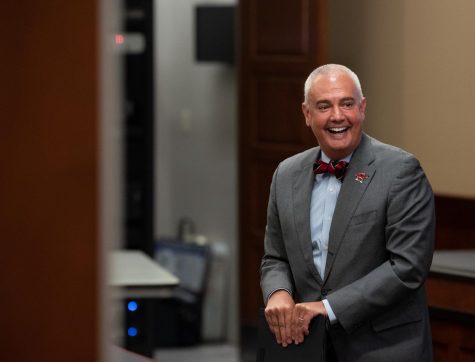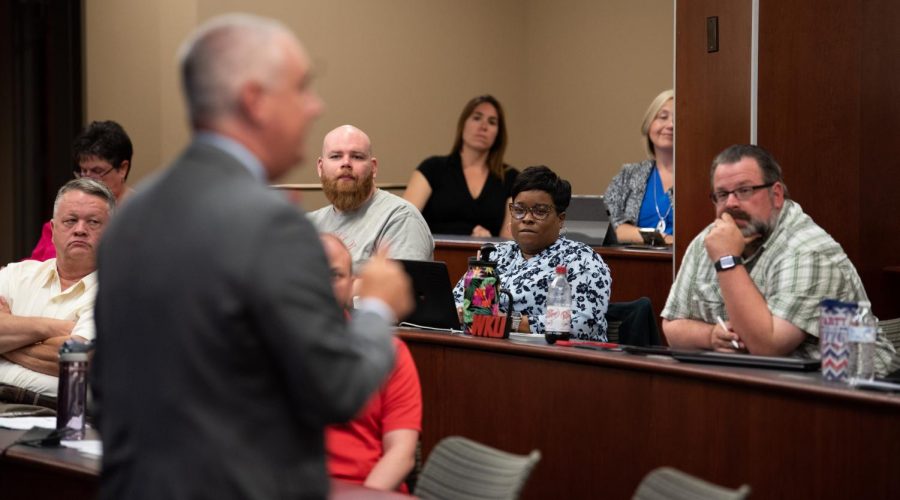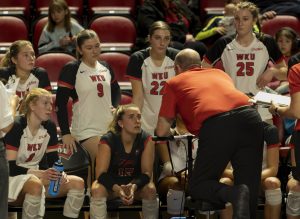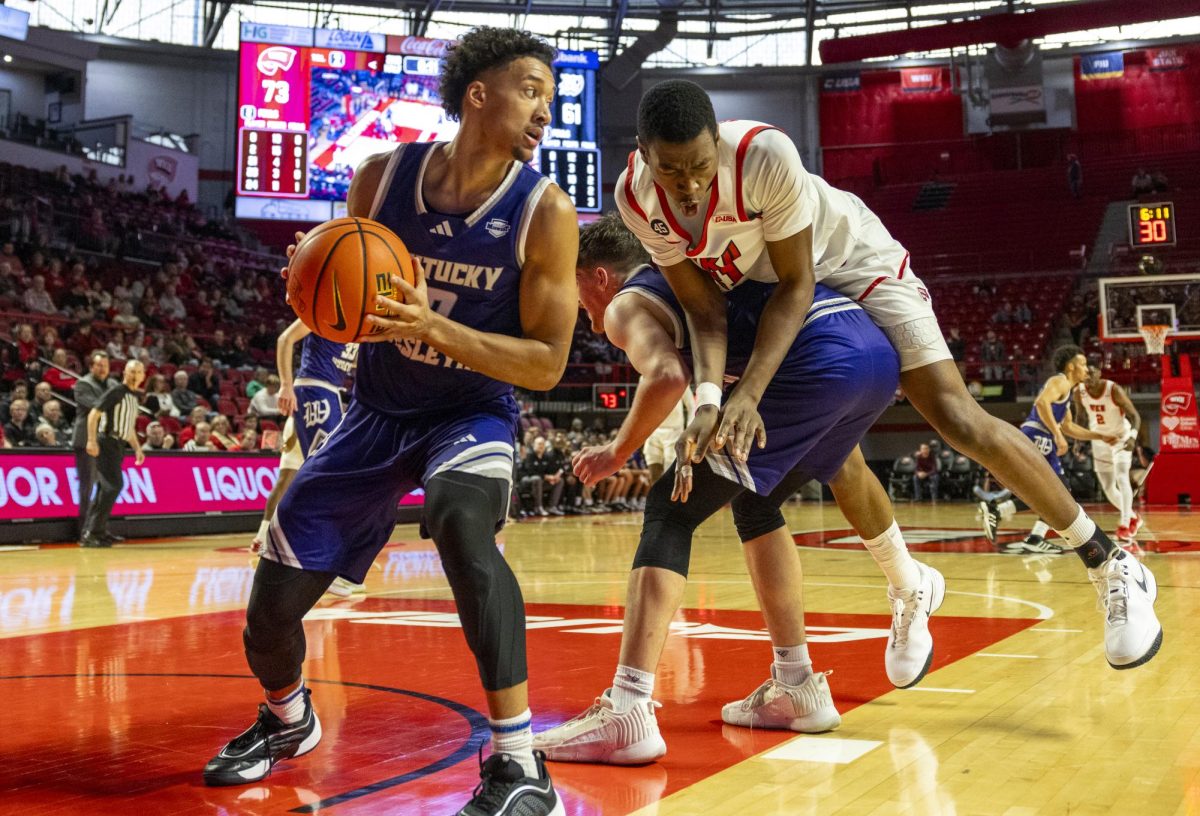Caboni discusses retirements, budget, return to normalcy
A special Board of Regents meeting to approve the budget for the 2022 fiscal year will be on Friday.
June 1, 2021
WKU President Timothy Caboni told members of the Staff Senate on Tuesday that the coming year will be significantly different on the Hill, with life moving closer to normal after the coronavirus pandemic, unused buildings torn down to open up more green space, fewer employees returning after early-retirement buyouts and the university continuing to work to decrease budget deficits.
Caboni told the Senate that many of the jobs held by the 125 people who took the retirement offer, which included a year’s pay up to $100,000, will no longer exist. He said essential duties would be redistributed among remaining employees – but it would be up to each area of the university to determine how those responsibilities will be handled.
“This can’t be run like a high school, where the principal decides everything … in black and white,” Caboni said. He urged staffers to take it upon themselves to “reorganize appropriately.” He said the recast jobs will give a “ladder” for some employees to move up as promotion opportunities.
The ultimate goal, he said, is more autonomy in how areas of the university work. “This is exciting stuff,” he said. “This is reimagining ourselves.”
Part of that will be coping with a deficit of about $5.73 million in WKU’s 2021-22 budget, which takes effect July 1.
But Caboni said the deficit does not mean budget cuts. “There is not another $7 million in reductions coming,” he said. “These are not additional reductions, We are just managing toward a goal.” Year by year, he said, the deficit will get smaller through controlling spending across areas of the university until it eventually disappears.
A key, he told staff senators, will be through WKU’s three primary sources of revenue – enrollment and retention, tuition and state funding. WKU is planning for a 2% increase in tuition rates, to $5,509 a semester for in-state students, for 2021-22.
He said WKU would move forward with a 2% raise pool for faculty and staff for the 2022 fiscal year, and that he anticipated that annual raises would continue to be built into future years’ budgets – something that has rarely happened over the past decade.
Caboni also said that stringent controls on spending, which required high-level approval for even routine purchases, would end as of July 1, returning to previous spending policies. He said “intentional organizational friction” regarding spending was essential to get WKU through a year when the global coronavirus pandemic was expected to require $27 million in budget cuts.
Part of controlling spending for the coming year includes three buildings being torn down – outdated buildings, two of which have been vacant for years but were still draining resources.
The Foundation Building at the top of the Hill is nearly gone, and demolition work has started on Tate Page Hall on South Lawn and on Garrett Conference Center.
Two new buildings will come on line – Normal Hall and Regents Hall, the new residence halls on the south end of campus that open in August. Called the First Year Village, the dorms will feature living-learning communities that allow students to meet their peers with similar interests.
Those students will find a campus that is much more open than in 2020-21 – one where most classes are in-person and masks are required only for those who have not been vaccinated for COVID-19.

WKU is still in the process of building that freshman class, he said, a job that is much tougher this year because high schoolers spent most of the year in remote learning. He said enrollment “will likely be flat, maybe up some,” but was concerned that there has been a decline in applications across Kentucky from students “who should’ve applied, but didn’t,” including those who would be first-generation college students and students of color.
In an effort to target those students, WKU adopted the Hilltopper Guarantee, which will start in the fall and cover 100 percent of tuition for any first year freshman from Kentucky who has at least a 3.0 cumulative GPA in high school and qualifies for any Pell Grant assistance.
“Young people want a traditional college experience, especially after their senior year” in high school during the pandemic, Caboni said.
Debra Murray can be reached at [email protected]. Follow her on Twitter @debramurrayy












